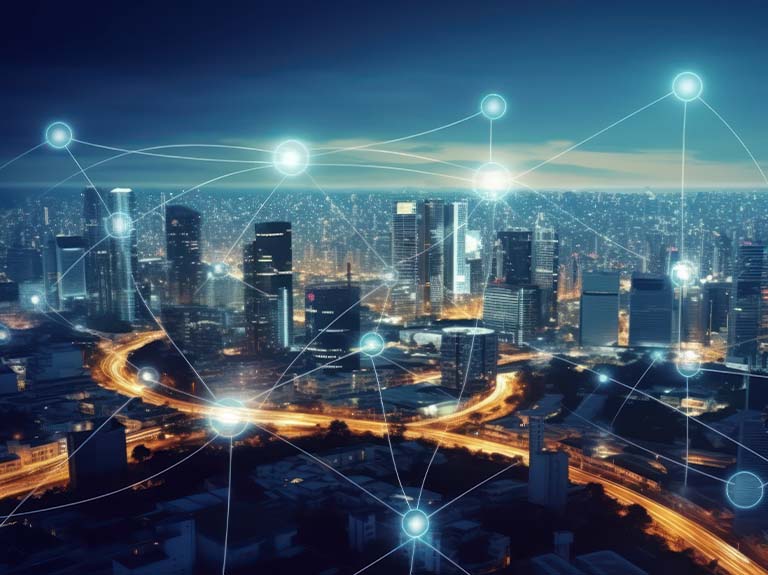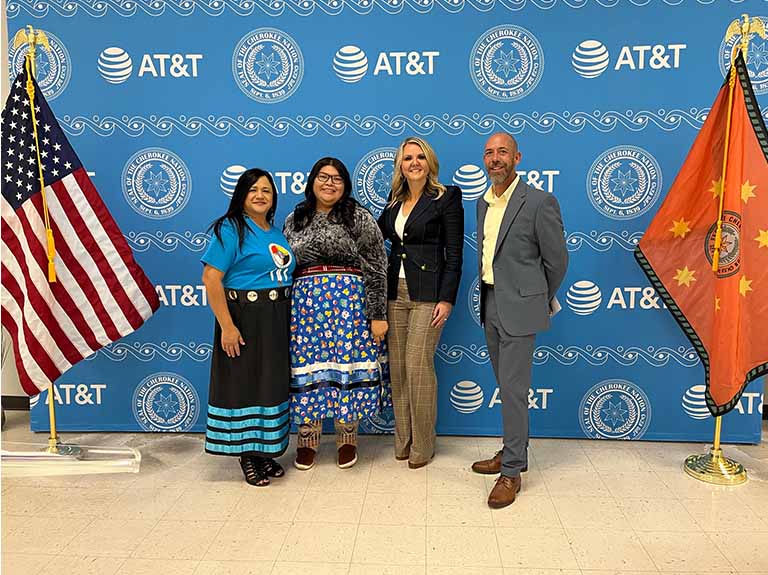Each year, I look forward to the conversations at Climate Week NYC, which brings together business leaders, government officials, civic changemakers, and others from the NGO and scientific communities to accelerate climate action and progress.
Against this summer’s backdrop of unpredictable weather events around the world, one topic was top of mind for me as leaders gathered in Manhattan: resilience.
For years, AT&T has been working to strengthen our network against the hurricanes, wildfires and floods that seem to be increasing in frequency each year, and it was powerful to see so many of our peers, collaborators and other stakeholders on the same page with a simple, clear mandate: help our business and communities prepare, adapt and recover from climate-related extreme weather.
The discussions I participated in at the Concordia Annual Summit, ICE Climate & Capital Conference and Forbes Sustainability Leaders Summit shed light on so many diverse perspectives from the business, policy and investment arenas, and I wanted to share some key themes:
- Climate resilience is a global business imperative. We are all facing extreme weather events and must work collaboratively to become more resilient. Our strategy at AT&T is grounded in the belief that we can strengthen our communities while delivering value to our business.
- We are all vulnerable to the human and financial costs of a more erratic and extreme climate. We must take an interconnected approach to resiliency. We can’t all be independently resilient, especially when it comes to supporting people and communities impacted. For instance, we rely on power companies to keep our network up and running. Similarly, we rely in part on water companies to keep our data centers and end offices cool.
- Public-private partnerships are essential to building stronger communities. Together, we can help improve the capacity to handle risks, identify and fortify vulnerable infrastructure, and better protect vulnerable populations. Data-driven solutions, like the ClimRR portal we created with the U.S. Department of Energy’s Argonne National Laboratory and FEMA, can provide crucial insights in the face of worsening climate disasters. Using climate science modeling, ClimRR gives community and government agencies like the Idaho Office of Emergency Management, free access to localized data about future climate risks that can be used to explore strategies for resilience.
- Leaders are hungry for innovation to prepare for future risks. Recent extreme weather events, like record-breaking heat, fires and floods this summer, are indicative of what’s to come. Forums like AT&T’s Connected Climate Initiative can be incubators for new resiliency solutions by bringing together innovators and leaders from the private, research and NGO sectors.
- Climate resiliency is core to our business purpose. Every day, we create connection for the millions of people who rely on our services. To continue creating possibilities in our communities, AT&T has invested more than $140 billion1 in our infrastructure in from 2018-2022, and we’re working to ensure those investments remain resilient against the impacts of severe weather events so our customers can keep those vital connections. For AT&T, managing physical climate risk is imperative, and we’re innovating new ways to apply our climate data to fortify our network and protect communities.
Our world needs big, systemic shifts to address the dangers of extreme weather, and those shifts won’t come from a single, major action or entity. Instead, action is brought about by a groundswell of many smaller actions.
With changes in our environment happening now, this is the time for us all to take action. Each of the events I participated in left me feeling hopeful about our collective abilities to work together and build a more resilient future.
Read more Corporate Social Responsibility news



